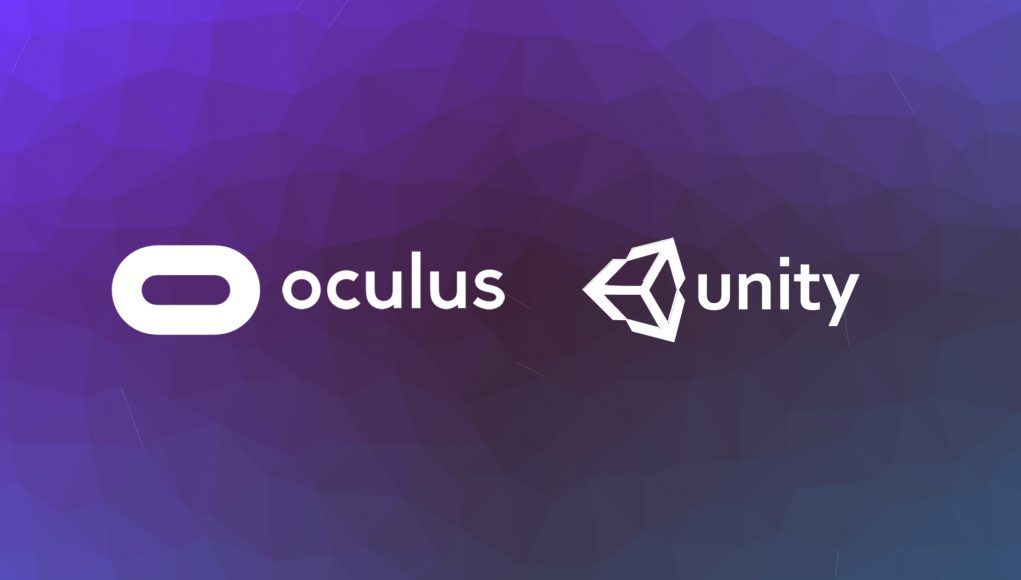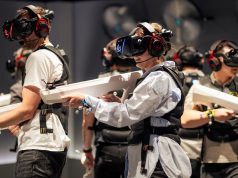Already have some basic game dev experience and looking to get into VR? Then you may be interested in Oculus and Unity’s new intermediate level VR game development course, which is not only free, but can get you some valuable feedback from Oculus on your creation.
Called ‘Design, develop and deploy for VR‘, the course is said to offer extensive intermediate level training that takes you through all aspects of creating a VR game by helping you build a vertical slice of an escape-the-room game.
Broken down into 11 units and estimated to take more than 20 hours to complete, you’ll learn from a dozen Oculus and Unity experts covering basic topics such as how to prototype and plan a VR experience, VR ergonomics, spatial audio, VR user experience (UX) design, and app optimization.
Although targeting VR game development, the skills learned in the course can also be applied to either consumer of business-focused experiences.
After you complete the course, you have the option to submit your vertical slice for review by the team at Oculus.
Design, Develop & Deploy for VR with Oculus & Unity
Before you start though, you should have a basic foundation in Unity development and some idea of VR basics, which you can explore through resources such as Unity’s intro tutorials and the ‘Build Your First VR App’ tutorial from Oculus. Then all you’ll need is Unity, the Oculus SDK and VRTK, and Oculus hardware; the course was developed with Rift S in mind, but you’ll be able to develop for both Rift and Rift S.
Here’s the course topics, contents and instructors:
- Unit 1: Introduction – Chris Pruett from Oculus – Chris gives you an overview of the VR industry, best practices for a successful VR game and an overview of what you’ll be learning.
- Unit 2: VR game development and prototyping – Ruth Bram and Mari Kyle from Oculus – Planning sets you up for success, and in this unit, you’ll learn to create a game design document, a player profile report and a press kit.
- Unit 3: Using Unity to develop VR experiences – Joy Horvath from Unity – You’ll learn how to set up the Oculus and Virtual Reality Toolkit (VRTK integrations) in Unity as well as how to set up a basic VR scene.
- Unit 4: Locomotion and ergonomics – Eric Cosky from Oculus – Get best practices for making your VR experience comfortable and learn how to implement a teleportation system.
- Unit 5: Hand presence and interaction – Matt Franklin from Oculus – Learn how hand interactions work in VR, how to design interactions to manipulate objects and how to overcome challenges with item placement.
- Unit 6: Best UI practices for VR – Gabor Szauer from Oculus – Transition from 2D to VR, review well-established VR interaction paradigms (think laser pointers) and find out how to design a user friendly interface for VR.
- Unit 7: Sound in VR – Robert Heitkamp of Oculus –Implement spatial audio for VR with the Oculus Spatializer Plugin. Plus, dive into reverb and mixer settings and learn how to test your audio.
- Unit 8: Performance requirements – Matt Conte from Oculus – Be efficient with assets, implement lighting and configure your settings to get better performance from your VR game.
- Unit 9: Optimization – Cristiano Ferreira from Oculus – Get to the bottom of bottlenecks with Unity Profiler, Frame Debugger and Unity Profile Analyzer. You’ll also learn about the technical requirements to pass Oculus Virtual Reality Checks (VRCs).
- Unit 10: Testing – Lisa Brewster and Bruce Wooden from Oculus – Successfully run tests on your VR application. By the end of this unit, you’ll be ready to implement quality VR playtests to your development cycles.
- Unit 11: Submission and go-to-market strategy – Mari Kyle from Oculus – In this final unit, you’ll get a crash course on marketing to drive awareness of your VR experience and pricing strategy. We’ll also talk about best practices for submitting to the Oculus Store.










